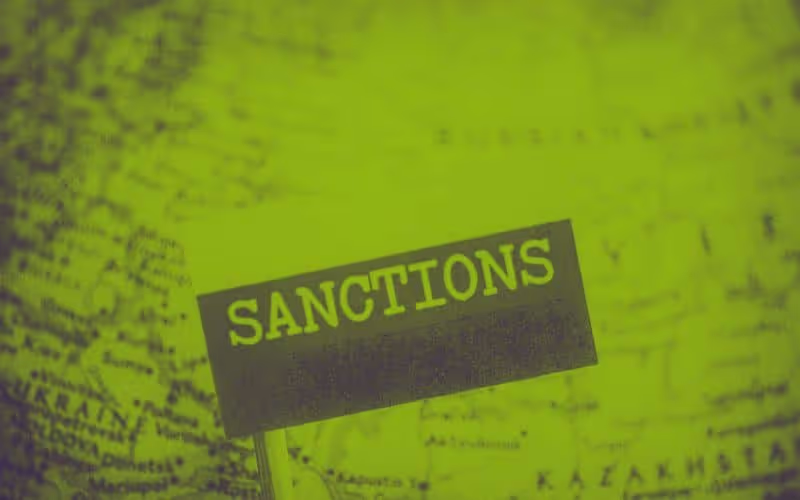
The Impact of Russian Sanctions on The West
Western nations have imposed stringent sanctions on Russia following the attack against Ukraine in February 2022. Within weeks, the country lost half of their imports and their manufacturing facilities are struggling to obtain the components they need to remain operational. However, the Russian government continues to increase their war spending, even as its revenues are shrinking. Some have questioned whether the sanctions are achieving their desired results - or simply hurting the ones imposing the sanctions. No doubt about it: the world needs Russia’s exports. However, rather than back down or relax sanctions regimes, Western nations are finding ways of mitigating the impact of sanctions on their own economies. Here are just a few of the ways Russian sanctioning has been felt (and dealt with) around the globe:
Energy Industry
The biggest impact on the Western world has perhaps been felt in the shrinking global oil and gas supply, which sent energy prices skyrocketing. Europe plans to spend €200 billion to end its reliance on Russian fossil fuels by 2027. Russia has also stopped gas deliveries to five nations unwilling to remit payment in rubles and has reduced their gas deliveries to Germany. Europe has been dependent on Russia for energy for more than fifty years, and bringing that relationship to an end will be expensive and difficult. Some fear that a total cut-off from Russian fuels will force Germany into declaring a state of emergency.
Agriculture
Russia’s impact on the global agricultural market can be keenly felt, particularly with regard to grain and mineral fertilizers. Russia is actually stealing and exporting Ukrainian grain, which further aids their coffers. Food exports from Ukraine and Russia (particularly maize, sunflower oil, and wheat) have been halted, increasing the prices and driving up the demand for substitute products. There is also a reduction in exports of fertilizer from the Black Sea region, which has impacted the quantity and nature of crops producers plan to grow. The entire industry is also under strain due to higher fuel prices, which adds pressure and further drives up the price of food and fertilizer.
Russia and Ukraine accounted for more than 25% of global wheat exports before the conflict, which has impacted the food security of numerous nations. According to the Food and Agriculture Organisation of the UN (FAO), fifty countries rely on Russia and Ukraine for 30% of their wheat imports, including Lebanon, Iran, Tunisia, Jordan, Libya, Oman and others. Ukraine is also an important supplier of maize to the EU and China. FAO projects that the conflict will see a rise in global food prices of between 8% and 22%, leading to an increase of 13 million more undernourished people in 2022 and an additional 17 million in 2023. Food availability in the UK will not be impacted, but food prices will rise as energy input costs for UK farmers saw an increase of 34% between January and April 2022.
The Labour Market
While not a direct impact of sanctions, the agricultural market will also feel the impact of labor shortages in the months to come. 43% of people working in the UK under the Seasonal Worker Scheme between January and March 2022 were from Ukraine. The adoption of martial law in Ukraine has since prohibited men of fighting age from leaving the country. Elsewhere, more than 5 million refugees have fled to neighboring countries, with 43.5 of refugees of working age having lost or left their jobs. This will put pressure on the labor market in Moldova, Hungary, Slovakia and Romania.
The hostilities in Ukraine have also been a concern for IT outsourcing companies with interests in the country. Ukraine exports $6.8 billion in IT services, equal to 4% of its GDP.
Metals and Manufacturing
Many markets are dependent on Russia to supply the metals used in the production of aircraft, semiconductors, and rechargeable batteries, including nickel, titanium, scandium, and platinum. Many larger automakers, including Renault-Nissan-Mitsubishi, Hyundai, and Volkswagen, as well as Stellantis, manufacture vehicles in Russia and have been faced with considerable disruption. The global semiconductor shortage (which is required to manufacture many components of a modern vehicle) and supply chain disruptions have sent global new car prices skyrocketing. Both Russia and Ukraine are critical exporters of raw materials used in various chipsets, which has raised concerns for the growth of the automotive industry in particular.
Compliance and Legal
The number of sanctions against Russian entities and persons has far-reaching consequences for many businesses who have battled to keep up with the rapidly-changing sanctions regime. Companies are required to perform sanctions screening as part of their AML/FCC program to detect, prevent and manage sanctions-related risks during onboarding and transacting. This is done by identifying sanctioned individuals and organizations at various stages of the customer relationship. Firms that fail to adopt robust sanctions screening and AML measures may face harsh penalties, including fines. As the list of Russian sanctions and sanctioned individuals continues to grow, sanctions screening becomes more complex.
Are Sanctions Working?
Sanctions may feel like a double-edged sword, especially since Russia has shown no sign of relenting its attacks against Ukraine. However, based on VAT revenues, Russia’s imports have decreased more than two-fold, while revenues from import excises and duties have decreased three-fold. Many enterprises within Russia depend on imported components. The share of the value created abroad exceeds 50% in many markets, including pharmaceutical, auto manufacturing, textile and computer industries. The EU, US and Canada account for half of the value added. Car plants have ceased operations, and many local auto manufacturers in the country are producing cars without airbags, air conditioning and automatic transmission. The country has also struggled to maintain its aircraft as the US and EU are blocked from selling aircraft or aircraft parts to Russia. Their retail industry has been unable to import clothing, perfumes or luxury goods.
Western sanctions are taking a heavy toll on the Russian economy. There has already been a collapse in imports and a decline in living standards. While Western nations may feel the pinch for a few months, they are having the desired effect on Russia and will hopefully lead to peace talks in the coming months.
In the meantime, for sanctions to have their effect, financial institutions and businesses must adhere to the sanctions regimes placed in effect by their various governments.
If you would like to know more about automated sanctions screening solutions or need a solution to help your business remain compliant, speak to our sanctions.io team about an obligation-free demo.



